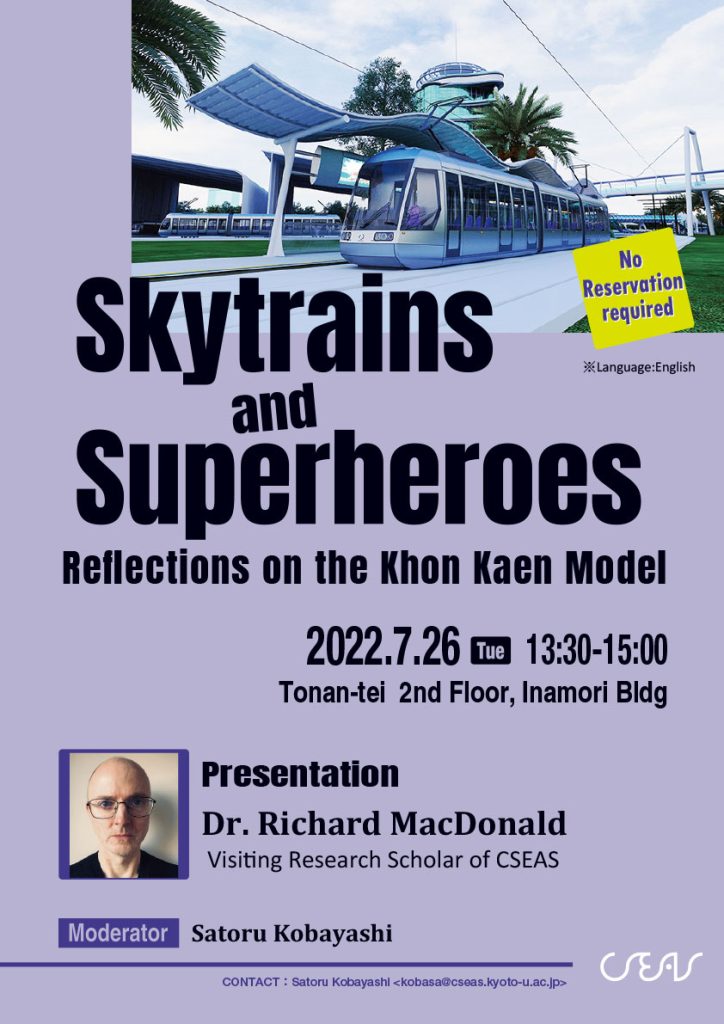Date & Time: Tuesday26 July, 2022, 13:30 – 15:00
Venue: Tonan-tei 2nd Floor, Inamori Bldg
Presentation:
Dr. Richard MacDonald
Visiting Research Scholar of CSEAS
Abstract:
The prospect of new transport infrastructures, notably China’s Pan-Asia High Speed rail, enhancing cross-border connectivity between the cities of the greater Mekong has galvanised entrepreneurial urbanists in Khon Kaen, a secondary city in the Northeast of Thailand. The Khon Kaen Development Corporation, formed in 2015 by twenty prominent business figures with interests in manufacturing, real estate and retail have proven adept at navigating a notoriously centralised Thai state, securing ministerial approval for plans to build a privately financed light rail network, the first in the country outside of Bangkok. The light rail network is the flagship project of a privately financed urban development formula, referred to as the Khon Kaen Model, in which claims of local self-reliance feature prominently.
Drawing on fieldwork conducted prior to the COVID19 pandemic, along with analysis of promotional and journalistic discourse, my talk explores the way the light rail network addresses the people of Khon Kaen and beyond, channelling hopes and expectations. More broadly, I discuss the Khon Kaen Model as a form of entrepreneurial populism that positions the members of the Development Corporation as exemplars of civic virtue and, as such, the legitimate representatives of local popular will. Coming into existence a year after the 2014 military coup which suspended local and national elections, the Khon Kaen Development Corporation promotes an ideal of civic governmentality during a period in which the political as a realm of contested visions and programmes of future-making has been actively suppressed.
Bio:
Richard MacDonald is a Senior Lecturer in the Department of Media, Communications and Cultural Studies at Goldsmiths, University of London. He conducts ethnographic and media archaeological investigations into the relationship between technological infrastructures and publics. He has published in Visual Anthropology Review, Photographies, The Sociological Review and International Journal of Cultural Studies. He is currently interested in disputes within the UK environmental movement and is planning a book on the mediation of public controversy and high-speed rail.
